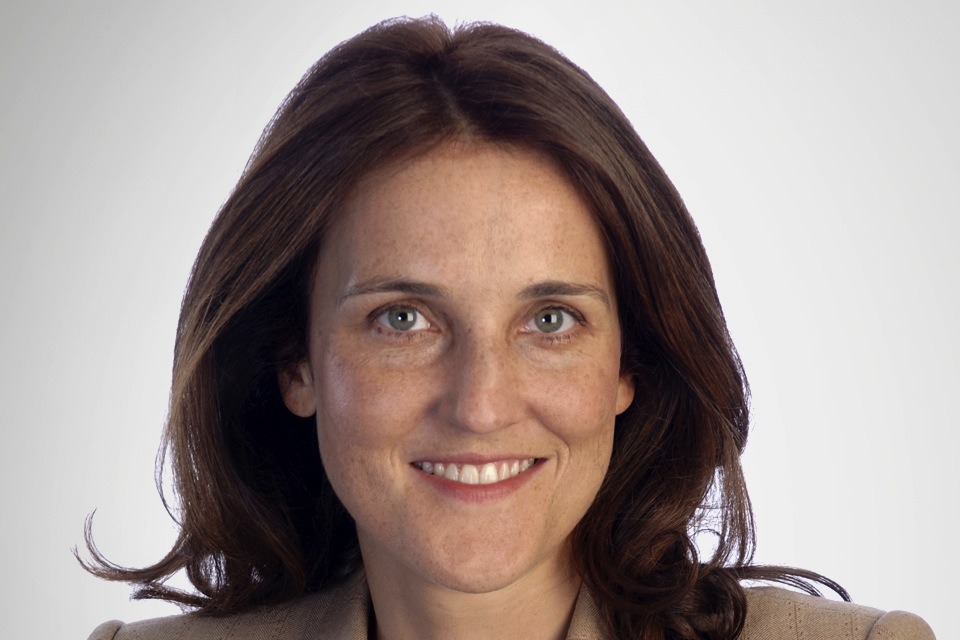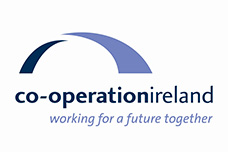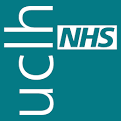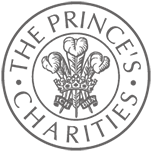Theresa Villiers addresses Co-operation Ireland’s gala dinner
Co-operation Ireland seeks to build a peaceful society based on tolerance and acceptance of cultural differences across the island of Ireland
Official GOV.UK posting 7 November 2013:
https://www.gov.uk/government/speeches/theresa-villiers-addresses-co-operation-irelands-gala-dinner
___
Rt. Hon Theresa Villiers, Secretary of State, Northern Ireland, was the guest speaker at the recent Co-operation Ireland Gala Dinner.
Speaking of the work of Co-operation Ireland, and its Chairman, Christopher Moran, Ms Villiers said:
“Any Secretary of State for Northern Ireland very quickly comes to appreciate the great enthusiasm and energy, almost missionary zeal, that Christopher brings to his role. And Co-operation Ireland is extremely fortunate to have him.
Since 1979, Co-operation Ireland has helped to transform hundreds of young lives by working across the community to promote mutual respect, tolerance and understanding. They have also carried out invaluable work in building relationships between Northern Ireland and the Republic of Ireland.”
You can read Ms Villiers full speech below:
It’s a great pleasure to be with you this evening. I’d like to thank your Chairman, Christopher Moran, for kindly inviting me to speak to you. Any Secretary of State for Northern Ireland very quickly comes to appreciate the great enthusiasm and energy, almost missionary zeal, that Christopher brings to his role. And Co-operation Ireland is extremely fortunate to have him.
So from the outset let me say a big thank you to Christopher, Peter Sheridan, and the rest of the team for the outstanding and invaluable work that you do. I’d also like to thank all of you here for the generous support you give to Co-operation Ireland.
Work of Co-Operation Ireland
Since 1979, Co-operation Ireland has helped to transform hundreds of young lives by working across the community to promote mutual respect, tolerance and understanding. They have also carried out invaluable work in building relationships between Northern Ireland and the Republic of Ireland. All of this is crucial if we are to underpin the political agreements of the past 20 years with firm foundations and achieve our objective of building a stronger, more cohesive and united society in Northern Ireland.
I know that Co-operation Ireland delivers some really groundbreaking and imaginative initiatives. These include their Youth Leadership Programme that’s helping young people in deprived or hard to reach communities to use their leadership skills and realise their potential in positive ways. Or there’s the Entwined Histories Programme that’s looking at the decade of centenaries and how they can be commemorated on a cross-community basis.
And I’m especially pleased that Co-operation Ireland has been chosen to deliver the government’s very successful National Citizen Service. This follows on from a highly promising pilot last year which was acknowledged as one of the best in the UK.
But it’s not just in your charitable work that Co-operation Ireland plays such a vital role. This organisation has hosted some highly significant events in the political development of Northern Ireland. That includes the historic meeting between Her Majesty the Queen and Martin McGuinness at Belfast’s Lyric Theatre in 2012.
And a few weeks ago at Queen’s University I had the privilege of attending the ground-breaking speech by the First Minister Peter Robinson at an event to celebrate the role of the GAA. So let nobody underestimate the importance of this organisation, the work that it does and the benefits it delivers.
For that you have the strong support of both the UK and Irish governments, everyone in this room and of all of us throughout these islands who care about Northern Ireland and want to see it prosper and move forward.
Progress in Northern Ireland
We should be in no doubt. Over the past 20 years Northern Ireland has come a very long way. That was brought home to me again last week as we marked the 20th anniversary of one of the grimmest months of the troubles. In October 1993 a total of 28 died. It was a time of horrific tragedy and many people must have doubted whether the cycle of violence would ever end.
Yet in December that year John Major and Albert Reynolds signed the Downing Street Declaration. Both governments made clear that the future of Northern Ireland would only ever be determined by democracy and consent, never by violence. And together they set out how dialogue could take place between those parties committed to exclusively democratic and peaceful means.
As everyone here will be aware, that eventually led to the Belfast Agreement and its successors, which have resulted in the relative peace and stability Northern Ireland now enjoys. While there were elements of the peace process that some people found difficult to swallow, I am in no doubt whatsoever that Northern Ireland is a far better place today as a result.
Strengthening the economy
Devolved government, for all the tensions inherent in a 5-party mandatory coalition, has now been up and running for longer than at any time since the 1960s. So the focus now has shifted and the key challenge we face is not how to deliver devolution but what devolution will deliver for people in Northern Ireland. And that means a strong emphasis on rebalancing and strengthening the economy. Because we all know that greater prosperity isn’t just important in itself, it’s also a powerful counter to those who play on historic grievances in order to try and recruit people into paramilitary activity.
In June, the Prime Minister brought some of the world’s most powerful political leaders to Northern Ireland for a hugely successful G8 summit. Against the beautiful backdrop of Lough Erne in Co Fermanagh, the world was able to see what Northern Ireland has to offer as a place to do business and invest in.
On the eve of the Summit the UK government and the Northern Ireland Executive, working more closely together than ever before, signed off an ambitious new economic pact aimed at boosting the private sector. And last month we jointly published an update on implementing that pact, just as the Prime Minister headed to Belfast to take part in the International investment conference and make what he admitted was an unashamed sales pitch for Northern Ireland.
During his speech the Prime Minister set out some of the benefits that Northern Ireland enjoys from being part of a UK economy that is finally turning a corner, on the road to sustainable recovery. And we are at long last seeing that in Northern Ireland itself, with business outlook increasingly positive, unemployment falling and the property market stabilising.
UK-Irish Co-Operation
But the Prime Minister was keen also to emphasise the advantages that Northern Ireland receives from the increasingly close relationship that exists between the United Kingdom and the Republic of Ireland. I know that many of you here this evening do business across both our countries and I can honestly state that relations between us have never been closer. In large part that’s down to the co-operation between our two governments on Northern Ireland and the great progress we’ve made together.
Of course I maintain regular contact Tánaiste Eamon Gilmore and the Justice Minister Alan Shatter and I very much enjoy my regular visits to Dublin. But the close ties between the UK and Ireland also reflect the reality of the deep historical, social, cultural and economic ties between us. For example combined trade between the UK and Ireland supports over 400,000 jobs in our economies. We are hugely inter-dependent, between Northern Ireland and the Republic and between our two countries as a whole.
That’s why when the announcement was made last week regarding the future of RBS, careful consideration was given not just to Ulster Bank’s importance to the Northern Ireland economy but also to its position in the Republic.
We take the view that a strong and successful economy in Ireland is manifestly in the national interest of the UK which was one of the reasons why we provided bilateral assistance to Ireland during its time of crisis in a way we did not for other Eurozone countries.
We now have the opportunity to broaden and deepen our co-operation. An aspiration that was embodied in the joint statement between the Prime Minister and the Taoiseach in March 2012. And I very much hope that the relationship between our countries will go from strength to strength.
Challenges ahead
But for all the progress we’ve made in recent years, we’re all here well aware of the big challenges that remain in Northern Ireland. On the economy, on security and on social division.
Firstly, the economic recovery in Northern Ireland still lags behind the rest of the UK and rates of economic inactivity remain above the UK average. So it’s vital that we and the Executive press ahead with implementing the economic package, through initiatives such as the ministerial task force on access to finance which we’ve just set up.
Secondly on security- there is still a minority who continue to pursue their objectives by terror. They are small in number with virtually no popular support and with no mandate, but they can still be lethal. So let me say again how grateful I am for the ongoing efforts of the PSNI, working with partners in An Garda Síochána, to counter this threat. They do an outstanding job in protecting people in Northern Ireland and they have the full and unequivocal support of both the UK and Irish Governments.
And thirdly on building a shared society, we’ve also seen this year there remain those issues, such as flags and parading, that have the capacity to create community tensions that can result in violence and disorder and put Northern Ireland in the headlines for the wrong reasons. Along with the past, these are now being examined by the Working Group under Richard Haass.
I’ve met Dr Haass on a number of occasions and last month he met both the Prime Minister and Deputy Prime Minister. The suggestion therefore that we are not engaged lacks any credibility. And as Dr Haass himself highlighted in interviews last week, Northern Ireland’s devolved settlement is a highly relevant factor here. It’s only by local politicians taking ownership of these issues that we are going to find real and lasting solutions.
\That’s why we welcome the initiative taken by the Executive in setting up the Haass Working Group, as we did the publication of the Executive’s community relations strategy – Together: Building a United Community in May.
This is just the kind of initiative that the Prime Minister has pressed for in all his recent visits to Northern Ireland and it has been a strong focus of my engagement with the executive as it was for my predecessor, Owen Paterson.
Nobody suggests that any of these issues lend themselves to quick or easy solution. Given the history of Northern Ireland they are immensely difficult. But I’m convinced that the will exists to make progress and that Northern Ireland’s politicians can move things forward. If they choose to do that, they will have the support of both the UK and Irish governments.
Conclusion
So be in no doubt. The UK government remains totally committed to working with all political parties and with the whole community to build a peaceful, stable and prosperous Northern Ireland for everybody.
- A Northern Ireland in which everybody is treated with equal respect, whatever their background or political aspirations.
- A Northern Ireland in which where what matters is not where you come from, but where you are going and what you can contribute.
- A genuinely shared Northern Ireland.
That’s Co-operation Ireland’s vision too. And in the years ahead I know that you’ll continue make your unique and valued contribution in making that vision a reality.
__
This article can be viewed in full: https://www.gov.uk/government/speeches/theresa-villiers-addresses-co-operation-irelands-gala-dinner
Read more: www.gov.uk






